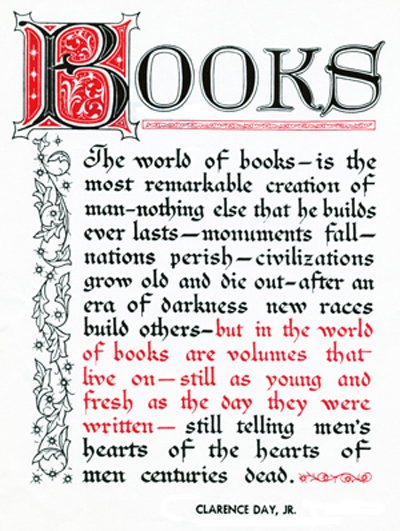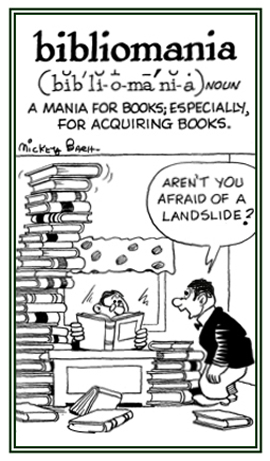biblio-, bibli-, bibl-, biblico-
(Greek: book, books)

bibliolatrous (adjective), more bibliolatrous, most bibliolatrous
1. Pertaining to an excessive adherence to a literal interpretation of the Bible in all of its aspects.
2. Characterized by the worship of books.
3. Relating to an extreme devotion to or concern for books.
2. Characterized by the worship of books.
3. Relating to an extreme devotion to or concern for books.
1. An extravagant admiration of a book or of books in general.
2. The worship of a book, particularly the Bible: Bibliolatry is a term of criticism levied against individuals who have an excessive devotion for certain books.
2. The worship of a book, particularly the Bible: Bibliolatry is a term of criticism levied against individuals who have an excessive devotion for certain books.
bibliological (adjective), more bibliological, most bibliological
1. Relating to the history and science of books as physical objects.
2. A reference to the study of the theological doctrine of the Bible.
2. A reference to the study of the theological doctrine of the Bible.
A professed student of the scientific description of books, book-lore; bibliography, and biblical literature, doctrine, or theology.
1. A scientific description of books, book-lore; bibliography.
2. The study of the doctrines of the Bible or the study and the doctrines derived from it.
2. The study of the doctrines of the Bible or the study and the doctrines derived from it.
Divination or fortune telling by picking words or other book passages at random: Several church councils were formed in the fifth century A.D. to study and forbid this "common" practice of bibliomancy.


One of the methods used was for a person to point to a line or passage of an open book with his or her eyes closed. The randomly chosen line was believed to convey a message of significance.
In the Middle Ages, it was trendy to use Virgil's Aeneid and Homer's Illiad. Moslems are said to use the Qur'an for this purpose.
Now, bibliomancy refers to divination which interprets randomly chosen passages from any book. The Bible is still the most frequently used book, although other publications may be used.
The variation of using a book of poetry is called "rhapsodomancy".
A person who is obsessed with old books: Gerda was accused of being a bibliomane because she had such a passion for collecting previously published books which were stacked to the ceiling in most of the rooms of her apartment.
An intense desire to collect and possess books; especially, rare and curious ones; crazy about books: Kim's bibliomania has resulted in a compulsion to have books stacked in all of her rooms, on and next to the full shelves.

© ALL rights are reserved.
Go to this Word A Day Revisited Index

Go to this Word A Day Revisited Index
so you can see more of Mickey Bach's cartoons.
Someone who has an intense desire to collect and possess books.
bibliomaniacal (noun), more bibliomaniacal, most bibliomaniacal
A reference to anyone who has an intense and inordinate desire to collect and possess books; especially, rare and curious ones.
An excessive preoccupation with the acquisition, possession of, or ownership of books.
Someone who randomly interprets chosen passages from a book.
The Bible is still the most frequently used book, although other books are also used.
Scientific data in books.
bibliomics (plural used as a singular) (noun)
The written collection of scientific data as published in books and other written presentations.
Related book unit: libr-.


